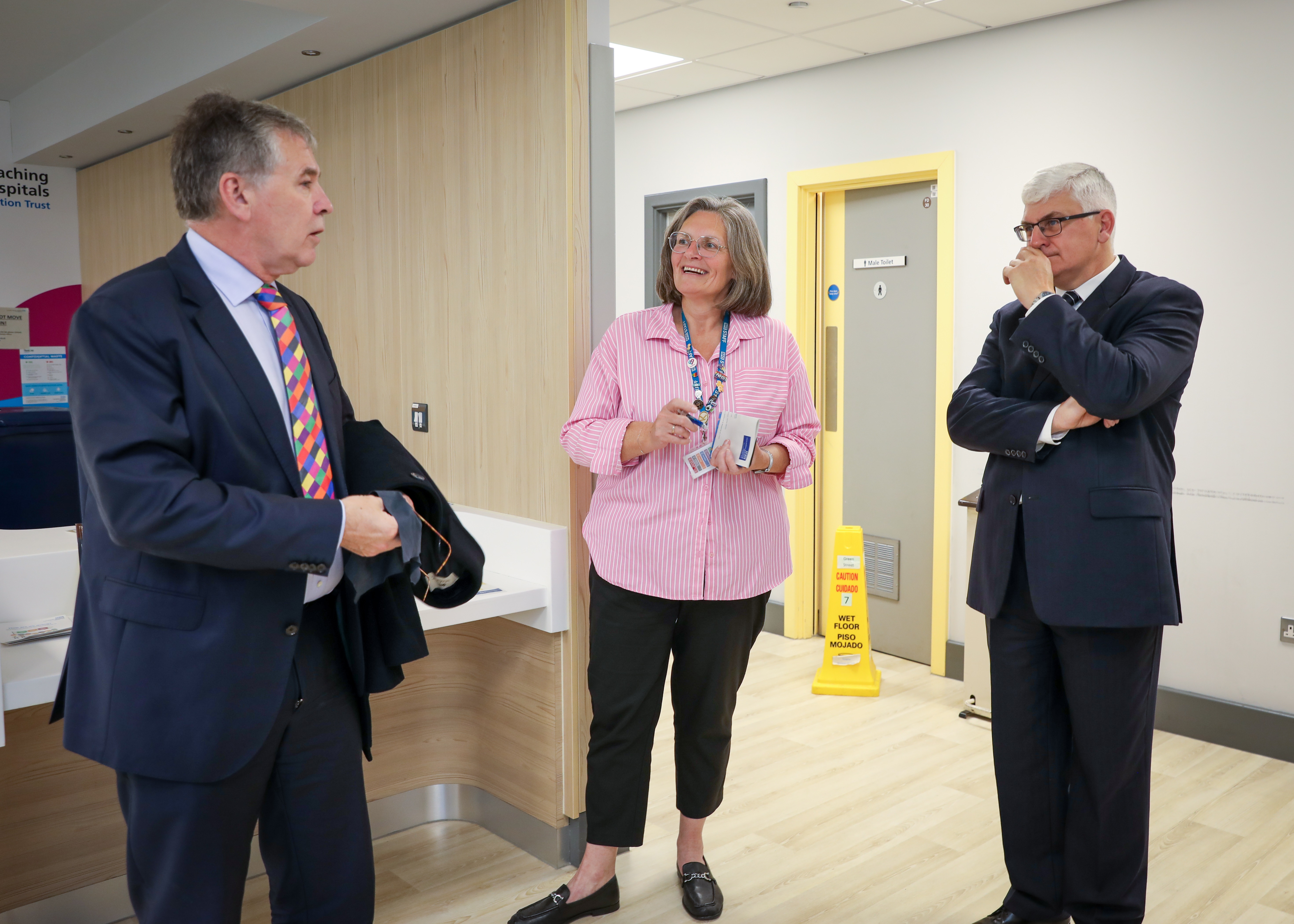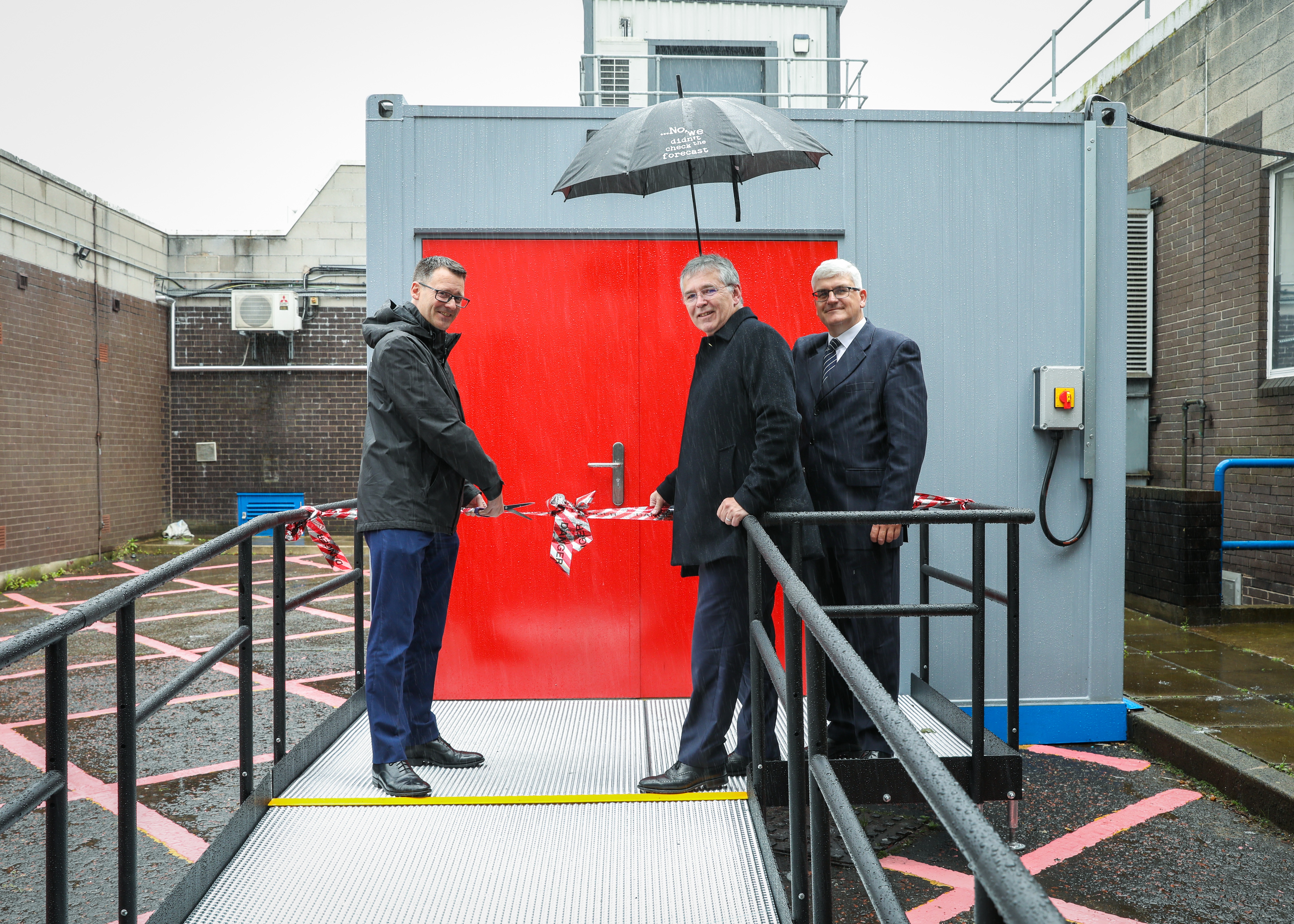
Lancashire Teaching Hospitals’ recently refurbished decontamination unit was officially opened earlier this month during a visit from Director of Resilience for NHS England, Stephen Groves, and North West Regional Director of EPRR, Phil Storr.
The duo officially opened the unit alongside Trust Chief Executive, Silas Nicholls, and were impressed with what they saw after their visit to Royal Preston Hospital to assess the Trust’s facilities and how EPRR (Emergency Preparedness Resilience and Response) is integrated.
As part of the NHS EPRR Core Standards, the Trust must plan for and be prepared to respond to all emergencies, and as part of this they must have facilities to be able to manage people who may have been exposed to chemicals because of an accident or deliberate release.
Historically, Trust facilities have met the decontamination capability required but have been in desperate need of modernisation and futureproofing. After a full refurbishment at both Royal Preston Hospital and Chorley and South Ribble Hospital, the Trust welcomed the NHSE Directors to officially open the new units.
Stephen said: “I’ve been extremely impressed with the way in which Emergency Preparedness is organised in the organisation. The new decontamination facility is excellent and would support good patient care for anybody who is contaminated. They would get the right care on arrival, be decontaminated, and move safely into the Emergency Department.
“The safeguarding elements of the security facility are second to none - I don’t think I’ve seen a system as comprehensive as that, it’s superb.”
Both facilities have been extensively revamped and offer an increase in showers available for contaminated patients. They not only enhance the Trusts decontamination capability, but also provide the Trust’s CBRN (Chemical, Biological, Radiological and Nuclear) trained staff in the Emergency Department with assurance and increased confidence in their decontamination response.

Speaking about the new decontamination unit, Clare Holbourn, Emergency Department Unit Manager, said: “It’s fabulous that we’ve got the unit, it means we’re more prepared in the event of such an incident, and it also takes pressure off staff – if we had to put the tent up in the middle of an emergency, that was a headache in itself. The fact now it’s ready to go is amazing, if you are going to be put into that situation, you just want the equipment to hand. We’re very pleased to have it.”
Before the opening, Stephen and Phil also spoke to Emergency Preparedness Resilience & Response (EPRR) Manager, Sam Hughes, who gave a short presentation.
That was followed by a visit to the Tactical Incident Coordination Centre (TICC), and the Security Control Room, before meeting with Trust Chief Executive Silas Nicholls to officially open the new decontamination facilities.
Commenting on the visit, Phil added: “It’s clear to see that there is a commitment at the very top of the organisation, and from everybody who we met – that there is a genuine desire and aspiration to do the right thing and constantly try and improve and innovate in the area of EPRR. That’s a credit to the organisation.”







